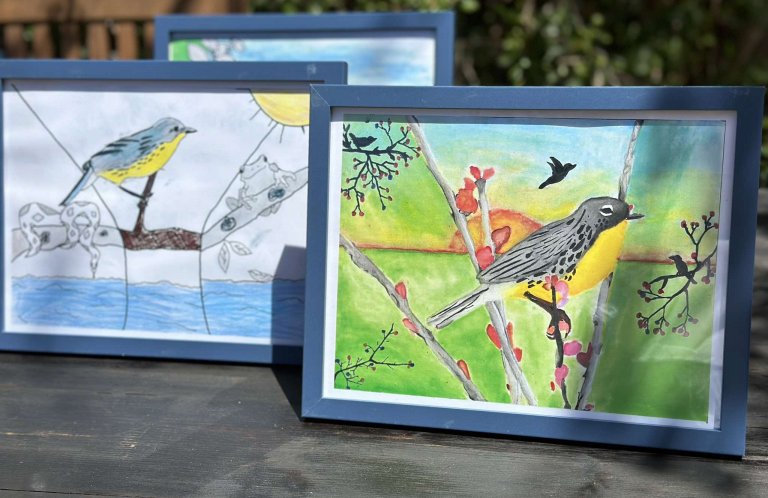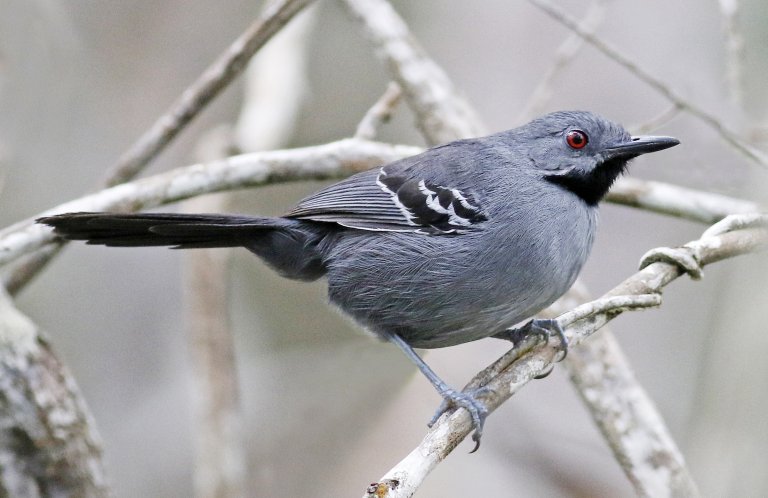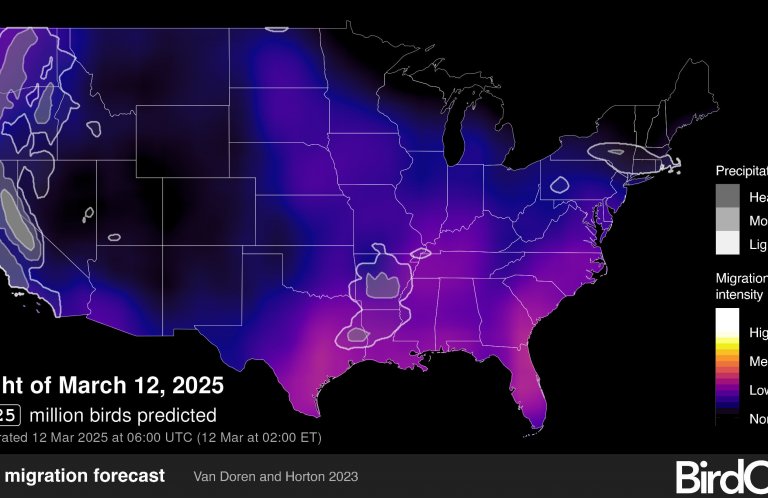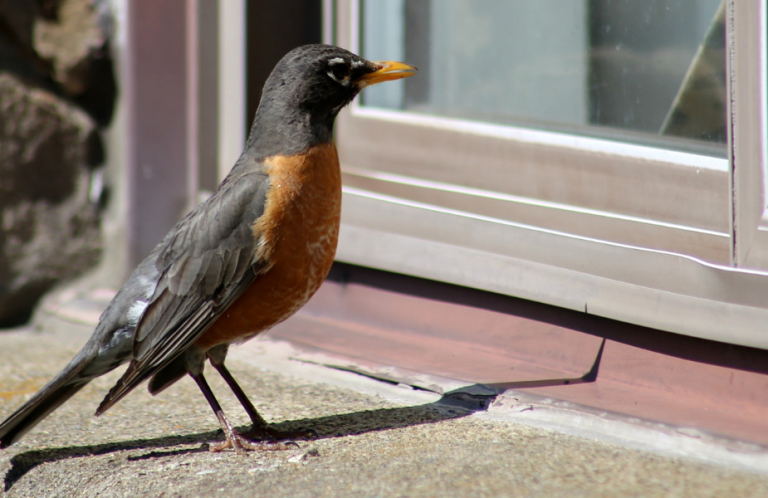The Search is on for South America's ‘Lost Birds'
High in the Santa Marta Mountains of Colombia in early 2015, two guards from Fundación ProAves' El Dorado Reserve found the Blue-bearded Helmetcrest, a hummingbird nobody had seen for 69 years. The rediscovery of such lost birds is not as infrequent as one might guess. Finding them, as other ABC-funded expeditions have done in the past with the Pale-headed Brush Finch and other birds, can be vital to their conservation. It's hard to protect birds if you don't know where they live.
The International Union for Conservation of Nature currently ranks at least 24 species in the Americas as threatened even though the species have no known individuals in the wild nor surviving in captivity. Most of these species should probably be considered extinct. But some may still persist, living in areas that are difficult to search and where few people go.
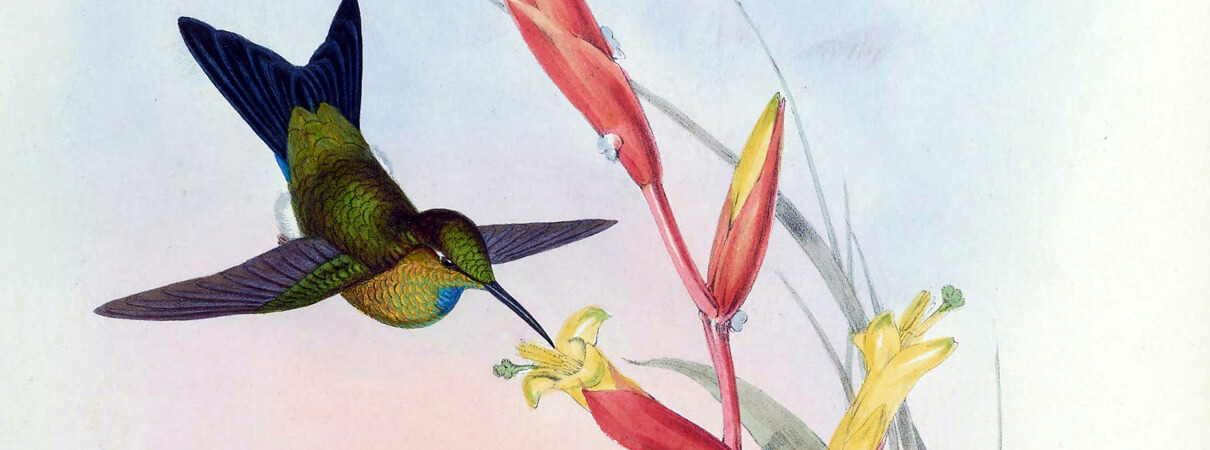
Turquoise-throated Puffleg illustration by JGould
To untangle this mystery and determine if the birds are still out there—and therefore deserving of our conservation attention—ABC is mobilizing resources and partners to conduct searches for some of South America's lost birds. We're starting with three: the Tachira Antpitta, the Turquoise-throated Puffleg, and the Kinglet Calyptura.
Quests for Three Lost Birds
In Venezuela, a team of researchers will seek the Tachira Antpitta, with participants from a wide variety of organizations: the Smithsonian National Museum of Natural History; Provita; Instituto Venezolano de Investigaciones Científicas; Colleción Ornitologica Phelps; the University of California, Santa Cruz; and Ascanio Birding Tours. The team will travel to the western part of Venezuela in June. Although the bird has not been recorded since the 1950s, security issues have limited field work that might have led to sightings of the species. Now, with access to the search area in the bird's small range along the border of Venezuela and Colombia, we believe this is the South American species most likely to be rediscovered.
In Ecuador, the search will soon be on for the Turquoise-throated Puffleg. Mainly known from the type specimen collected in Ecuador in 1850, there was an unconfirmed sighting of the puffleg in 1976. The Ecuadorian ornithologist Juan Freile and Tulane University's Jordan Karubian will conduct three searches for the species this year and next.
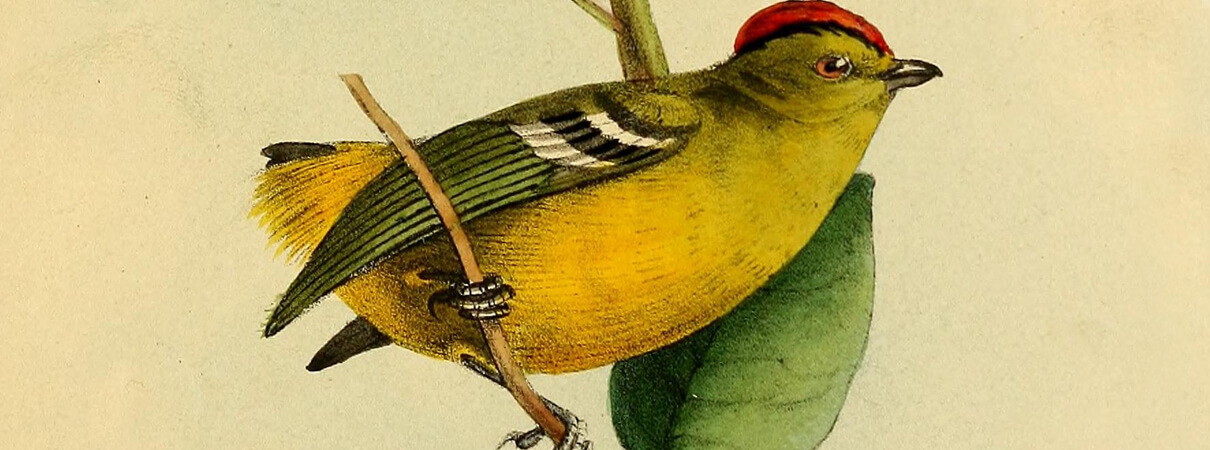
Kinglet Calyptura illustration by William Swainson
Brazil's Kinglet Calyptura is the most famous of the lost species. A strange bird resembling a kinglet in size and shape, the species was common in southeastern Brazil during the 1800s. It went largely unobserved for 119 years until a historic sighting in 1996. A smattering of other unconfirmed sightings have been reported since. Luciano Moreira Lima of the Observatório de Aves-Instituto Butantan will search for the bird later this year.
Seeking Answers on Data-Deficient Species
Beyond expeditions to rediscover lost species, ABC is also supporting several efforts to fill knowledge gaps critical to the conservation of little-known threatened species. For instance, over the next two years we will collaborate with Asociación Armonía and researchers Lisa Davenport and Don Brightsmith to locate the unknown breeding sites for Blue-throated Macaws that use Barba Azul Reserve in Bolivia.
In Chile, ABC is also collaborating with Red de Observadores de Aves y Vida Silvestre de Chile, the group that first discovered the breeding sites for Markham's Storm-Petrel in the Atacama Desert in 2015. They will return to the deserts of northern Chile this year to find new colony areas and determine threats. While doing so we also hope to find nests of the Ringed Storm-Petrel, a mysterious bird whose nesting locations are unknown.
Finally, on the Caribbean island of Dominica, ABC is working with partners to confirm and locate nests of Black-capped Petrels. We have radar evidence suggesting the birds are breeding on this island, but we don't know exactly where. Identifying the nesting locations will help us and our partners protect them.
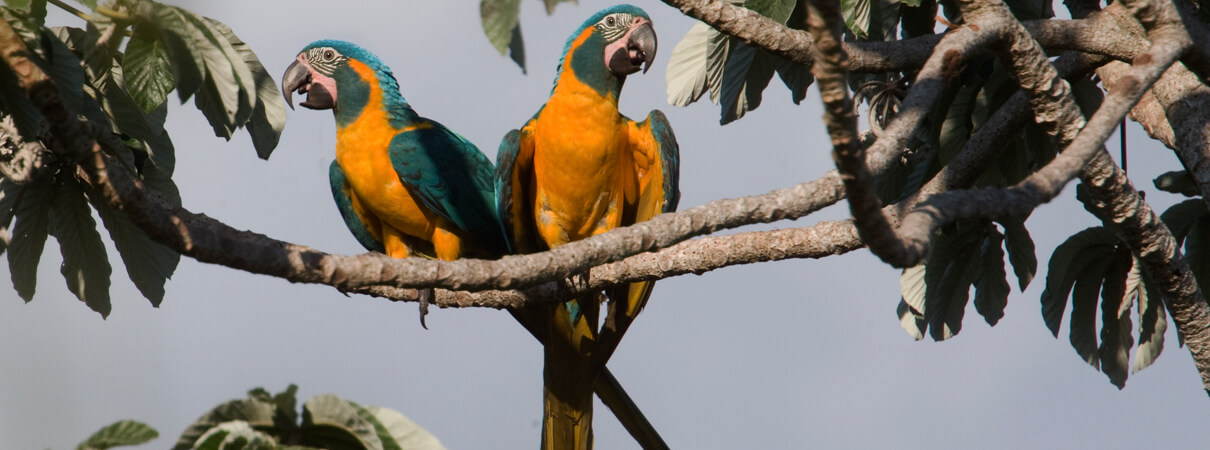
Blue-throated Macaws, Daniel Alarcon/Armonia
All of these expeditions—whether for lost species or ones we simply don't know enough about—are far more than an attempt to detect birds that have long been elusive. Finding these birds could mean the difference between saving them and losing them forever.
We encourage researchers and birders to embark on their own quests for other lost birds and let us know of their plans. Searches like these will ensure that decades-old observations of birds like the Turquoise-throated Puffleg will not be our final glimpse of such marvels.
 Daniel Lebbin is ABC's Vice President of International Programs. He received a BA in Biology and Environmental Science and Policy from Duke University and a PhD in Ecology and Evolutionary Biology from Cornell University. Daniel has worked for WWF, The Nature Conservancy, and the National Zoo, and participated in field research projects in Jamaica, Costa Rica, Ecuador, and Venezuela. A lifelong birder, Daniel enjoys bird illustration and photography. He co-authored The American Bird Conservancy Guide to Bird Conservation.
Daniel Lebbin is ABC's Vice President of International Programs. He received a BA in Biology and Environmental Science and Policy from Duke University and a PhD in Ecology and Evolutionary Biology from Cornell University. Daniel has worked for WWF, The Nature Conservancy, and the National Zoo, and participated in field research projects in Jamaica, Costa Rica, Ecuador, and Venezuela. A lifelong birder, Daniel enjoys bird illustration and photography. He co-authored The American Bird Conservancy Guide to Bird Conservation.





































